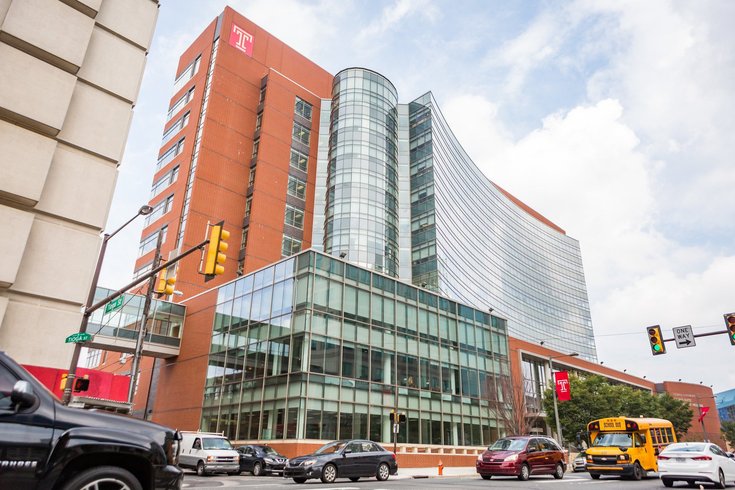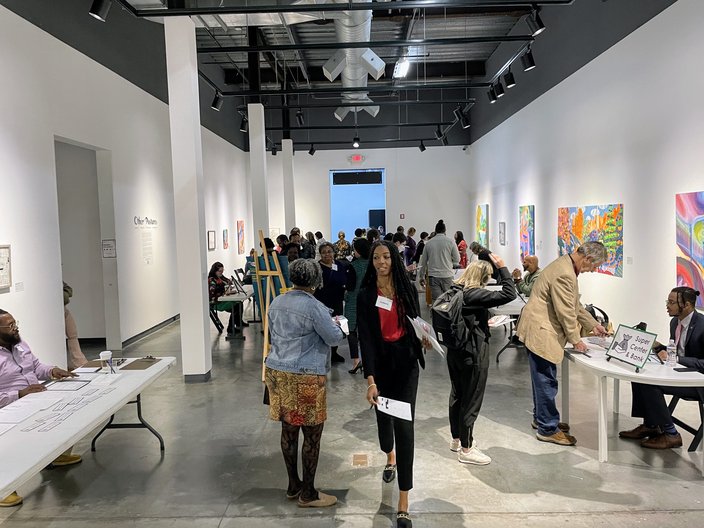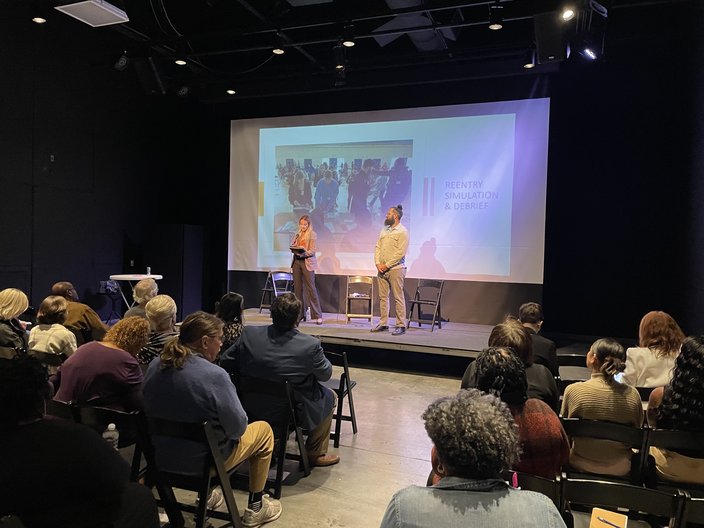
May 01, 2024
 Thom Carroll/For PhillyVoice
Thom Carroll/For PhillyVoice
Temple Health is running a reentry simulation that helps its providers better understand the challenges faced by patients who have recently been incarcerated. The simulation is taking place at the Temple's Medical Education and Research building, above.
A recent patient of Dr. Valerie Armstead, an anesthesiologist at Temple Health, made a request before he underwent a colonoscopy, a procedure that requires sedation.
As Armstead recalls, he said, "I don't want to have anything that's going to show up on my drug test, because I've been out of prison for a week, and I have to see my parole officer in five days – and if my urine comes up dirty, they're going to act first and ask questions later."
Armstead had been through a simulation project that replicated the obstacles that people leaving incarceration experience when reentering society. At one point during the simulation, Armstead pulled a card that said she had "dirty" urine, meaning her urine had tested positive for drugs during a mandatory screening and she faced serious consequences, including possible revocation of probation.
"At that moment, I really felt like I was being wronged, and I said, 'OK, this is like being in this other person's shoes,'" Armstead recalled. "And when I had that patient, I felt like, I know exactly what you are talking about."
Armstead's patient was harder to anesthetize because he could not have the drugs she normally would administer for a colonoscopy. "But we got it done. We just worked with him to give him what he needed in order to have this very important procedure," Armstead said.
The reentry simulation taking place Monday at Temple's Health campus, like the one shown above, gives participants pretend roles and asks them to complete various tasks, like finding a job, locating housing and paying bills. It's designed to help people better understand the hurdles faced by people leaving prison.
On Monday, Temple's Lewis Katz School of Medicine is hosting a reentry simulation similar to the one Armstead completed. Armstead, who helped organize the project, said she hopes Temple residents, fellows and medical students, as well as people from outside the university, will gain the knowledge she did about the challenges people face when returning from incarceration.
"It's one thing to have someone explain it to you," said Lori Pompa, founder and executive director of Temple's Inside-Out Center, which brings college students together with incarcerated students for semester-long courses in correctional settings. "It's a whole other thing to experience it."
During the two-hour simulation, participants will walk in the shoes of people just leaving prison. They will be asked to complete a series of real-life tasks within a limited time period, according to the identities they are assigned. They must comply with the terms of their probation, find a job, locate housing, attend treatment and pay bills.
The people going through the simulation will come out with a better sense of the stressors that people reentering society face, said Jacqueline C. Romero, U.S. Attorney for the Eastern District of Pennsylvania.
"When they (clinicians) have someone walking in the door who looks burnt out, run down and on their last leg, maybe they will approach their patients ... with a viewpoint toward getting them the kind of wraparound services that they need," Romero said. "They may be coming in the door because their glaucoma is out of control, but they might need some cognitive behavioral therapy or some family therapy. … If we're all doing our jobs, and we're all coming at this from holistic angles … it's going to help our reentering citizens in tremendous ways. It's going to help them deal with a lot of these life stressors and not make some drastic decisions."
People reentering society after long imprisonments may have developed chronic health issues, Armstead said, noting "the continued stress of being locked up … can really put wear and tear on you."
The image above shows a reentry simulation similar to the one that will be held at Temple's health campus on Monday, May 6. It aims to help people better understand the challenges faced by people who recently were incarcerated.
Once people are on the outside, they may have trouble accessing the necessary health care and medications – or even getting transportation to their doctor's appointments.
A "significant portion of released people actually use the emergency department as their primary care," Armstead said, adding that everyone working in emergency rooms should be more aware of what people returning to society face.
"If you are a surgeon and you have a trauma patient, then after you stitch them up, it's important to try and really be concerned about what happens to them afterwards," said Armstead, who is also a professor at Temple's medical school and has a master's degree in urban bioethics.
"People just have to want to help other people and be genuine about it and not just view it as an assembly line … where we can't have any deviations from the norm," Armstead said. "You may have to take more time with an individual or help them engage the help of other people."
The simulation takes place from 9:15 a.m. to 11:30 a.m. Monday at Temple's Medical Education and Research Building. It is sponsored by the Center for Urban Bioethics at the Katz School of Medicine, Temple's Department of Anesthesiology, the Inside-Out Center at Temple University and the U.S. Attorney's Office for the Eastern District of Pennsylvania. People can use this link to register.
 Provided Image/U.S. Attorney's Office for the Eastern District of Pennsylvania
Provided Image/U.S. Attorney's Office for the Eastern District of Pennsylvania